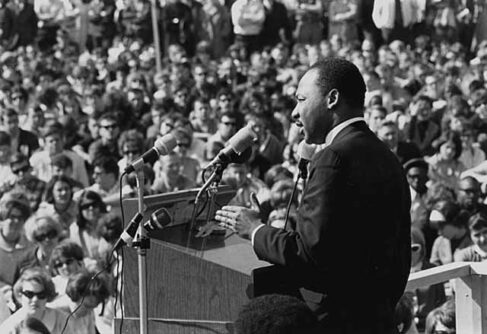Just as Easter is the holiday of music, Christmas is the holiday of literature.
Just as Easter is the holiday of music (think of Bach’s St. Matthew and St. John Passions -- even Handel’s Messiah is more properly an Easter than a Christmas piece), Christmas is the holiday of literature. Hans Christian Andersen’s Fir Tree and Little Match Girl, O. Henry’s The Gift of the Magi, Seuss’ The Grinch Who Stole Christmas, among many other stories, have Christmastide settings and themes.
It’s entirely understandable that Christmas should so often make its way into stories. More than any other holiday in the year, Christmas is associated with childhood memories as well as family gatherings and traditions. And, even secular people can associate themselves with the story of Christmas: who hasn’t endured uncertain “advent” periods waiting for a hoped-for-something that might or might not come? Or received a transformative gift in an unexpected guise?
No author has made more of Christmas than Charles Dickens, who was born 200 years ago this year. Although Dickens is most famous for his magnificent Christmas Carol, Dickens published so many stories with Christmas themes that there was a period when no Victorian Christmas was complete without a new Dickens story.
One of his Christmas stories, published with his Pickwick Papers, is The Goblins Who Stole a Sexton. This short story features the wonderfully named Gabriel Grub, a mean-hearted church sexton. Grub is digging a grave on Christmas Eve when he is surprised by a host of goblins led by a goblin king.
The story is frequently laugh-out-loud funny, as when Grub is quizzed by the goblin king about the smuggled Dutch gin (“Hollands”) Grub has been drinking:
“What have you got in that bottle?” said the goblin.
“Hollands, sir,” replied the sexton, trembling more than ever; for he had bought it of the smugglers, and he thought that perhaps his questioner might be in the excise department of the goblins.
That Grub, even under the shock of being quizzed by a goblin, would think of customs duties and taxes surely reveals that his heart is cramped by pecuniary concerns. Grub, as the goblin king charges, suffers from “envious malice of his heart.”
Only when the goblins show Grub that others rejoice in the wealth of familial love and nature is Grub cured of his “envious malice.” (And, indeed, the story leaves open the possibility that he is not, at least initially, entirely cured, for Grub leaves his town rather than steel his heart against the mockery of those who doubt the sincerity of his transformation.)
To suffer from “envious malice” is a too-common failing, and it may be a more common one after several years of an economic downturn that has left many people with disappointed economic expectations. Living in a smaller house or losing your house entirely, having lost a job and taken a lesser one, having lowered expectations about what colleges you can afford for your children—these are the sort of happenstances that can harden the heart. It is no coincidence that Dickens’ Christmas Carol was set during an economic downturn; Dickens appreciated how disappointed expectations may lead to “envious malice.”
May we take the goblins’ lesson about rejoicing in the abundance of friends and family this Christmastide. Best wishes for the holidays.
--
This piece was originally published in Dec. 2012. It has been re-published more recently since then.






